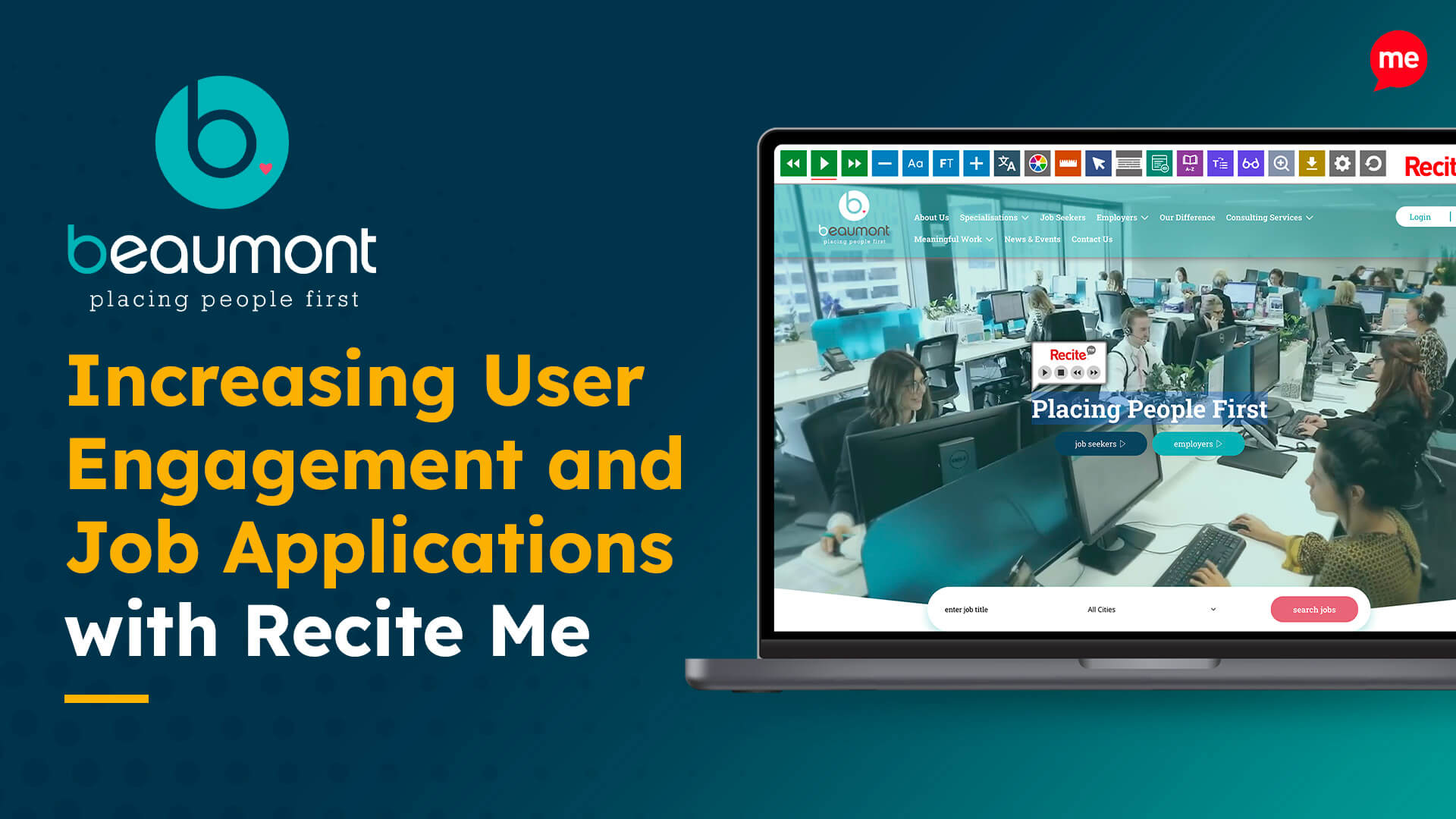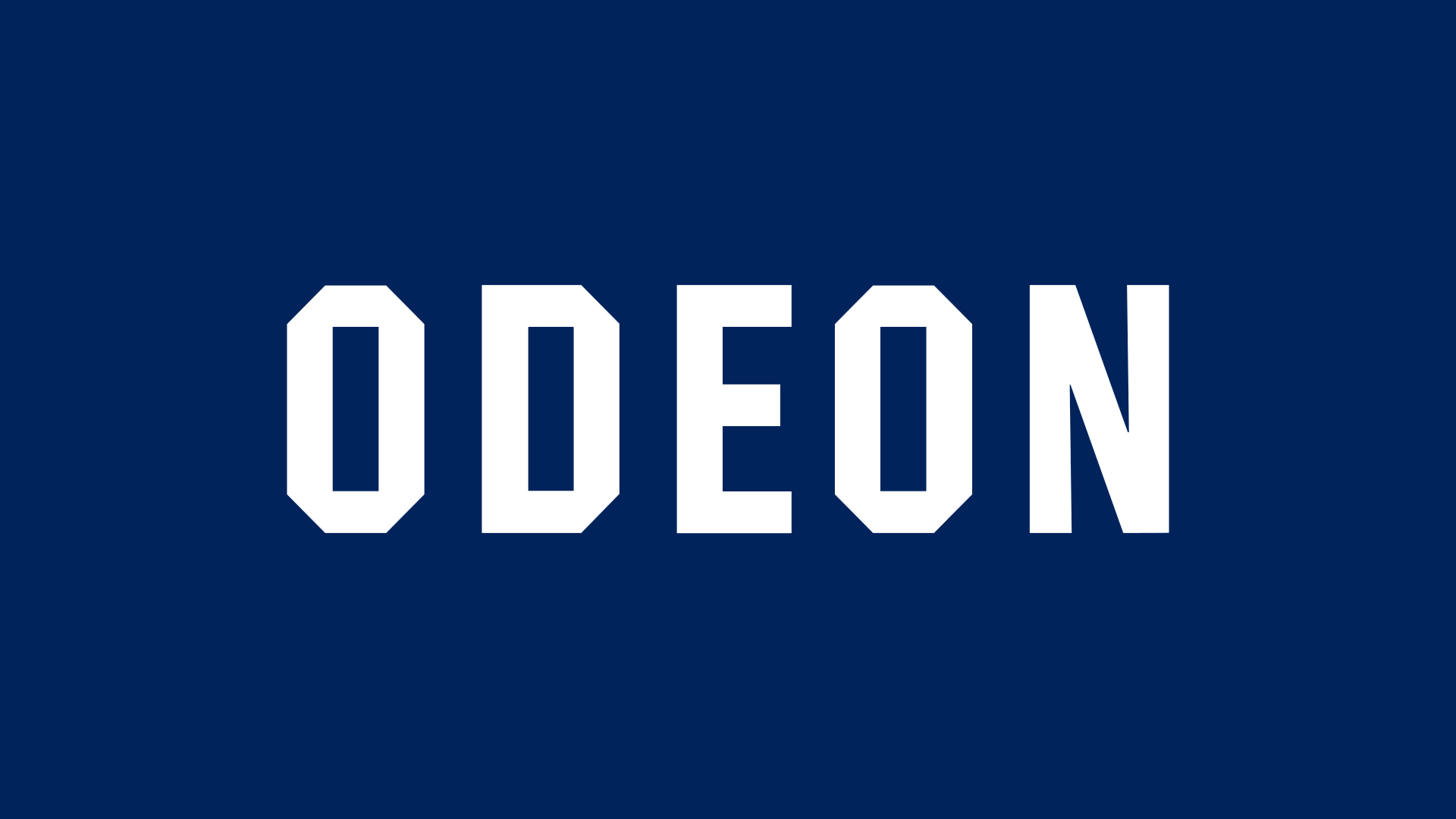Get Your Free Inclusive Recruitment Guide
Download NowIn today’s hyper-competitive job market, the significance of employer branding in recruitment cannot be underestimated. Candidates are increasingly seeking companies with compelling reputations as employers. This article explores the pivotal role of employer branding in attracting and retaining top talent.

What is Employer Branding?
Employer branding refers to the process of shaping and promoting a company’s reputation as an employer. It involves creating a distinct identity and image that attracts and retains top talent. Think of it as the company’s reputation in the job market. Just like how companies build brands to attract customers, they also build brands to attract employees.
Employer branding encompasses various strategies and initiatives aimed at showcasing what it’s like to work for a particular company. This includes highlighting the company’s culture, values, benefits, career development opportunities, work environment, and employee experiences. By effectively communicating these aspects, companies can differentiate themselves from competitors and appeal to the kind of talent they want to attract.
Why is Employer Branding Important?
Employer branding is important for several reasons:
- Attracting top talent: In today’s competitive job market, attracting the best talent is crucial for business success. A strong employer brand helps companies stand out and appeal to top candidates who are seeking not just a job, but a fulfilling career with a reputable employer.
- Reducing recruitment costs: When a company has a positive employer brand, it becomes easier to attract candidates who are a good fit for the organisation. This can lead to a reduction in recruitment costs, as less time and resources are needed to find and attract suitable candidates.
- Improving employee retention: Employees are more likely to stay with a company that has a positive reputation as an employer. A strong employer brand helps foster a sense of pride and loyalty among employees, reducing turnover rates and the associated costs of hiring and training new staff.
- Enhancing company culture: A well-defined employer brand communicates the company’s values, mission, and culture to both current and prospective employees. This can help attract individuals who are aligned with the company’s culture, leading to a more engaged and motivated workforce.
- Boosting brand reputation: A positive employer brand not only attracts top talent but also enhances the company’s overall reputation. Employees who have a positive experience working for the company are likely to become brand ambassadors, spreading positive word-of-mouth and attracting more talent. Highlighting the importance for stamping out discrimination in recruitment practices.
- Increasing competitiveness: In industries where talent is scarce, having a strong employer brand can give companies a competitive edge. It can help differentiate them from competitors and make them more attractive to potential hires, enabling them to build a talented and high-performing team.
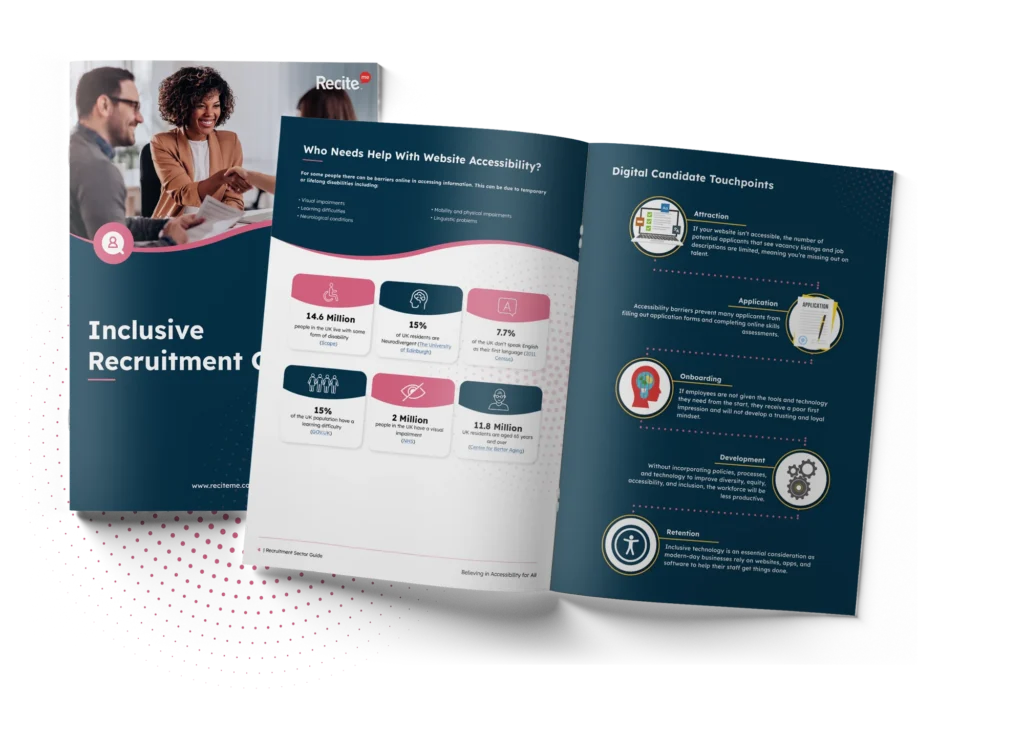
Download our Inclusive Recruitment Guide
Break down digital barriers and attract the best talent for your business!
Discover hidden talent and recruit from a larger talent pool by providing assistive technology. Support your potential candidates who may be disabled, visually impaired or who speak English as a second language to research and apply for jobs online.
How can Organisations Develop an Employer Brand?
There are a number of different strategies and tactics that organisations can introduce to help shine a positive light on their employer brand. From inclusive practices to internal audits, training, having a strong social media presence and more.
Inclusive Recruitment Practices
One of the best ways to implement a strong employer brand is by ensuring diversity and inclusion in your recruitment practices. Inclusive language and job descriptions can help with this. Furthermore, accessible physical facilities and online resources are an additional way organisations can implement inclusivity.
With much of the application process now being digitalised, it’s important to make a good first impression on candidates. This can be done by ensuring your website is inclusive to everyone, including those with disabilities. Accessibility tools such as an accessibility checker and/or accessibility toolbar can aid your organisation in achieving this goal.
An Accessibility Checker can be implemented to outline any inaccessible website features, with suggestions as to how they can be fixed. An Accessibility Toolbar is a piece of software that can be installed on your website, allowing users to customise your website in a way that works for them.
Alternatively, you can start addressing some of these issues manually with our Inclusive Recruitment Checklist.
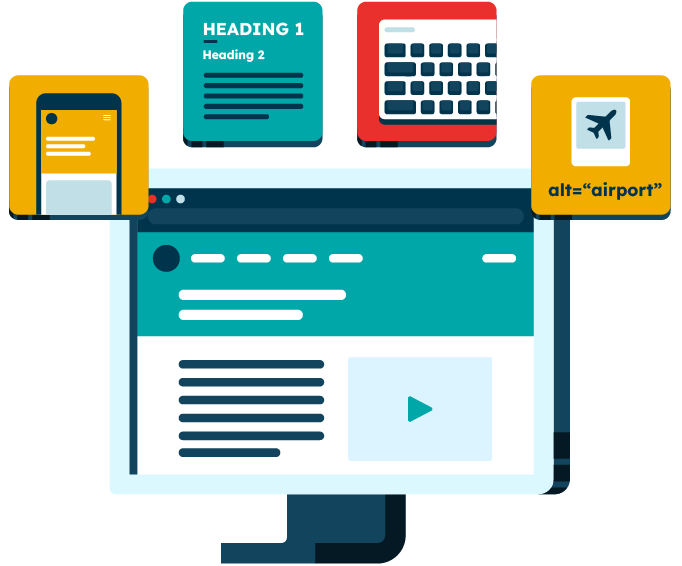
Conduct Internal Audits and Surveys
Conducting internal audits and surveys is a foundational step in developing an employer brand. These initiatives involve actively seeking feedback from current employees to gain insights into their experiences, perceptions, and sentiments about working for the organisation. By engaging in dialogue with employees, organisations can uncover valuable information about the strengths and weaknesses of their employer brand.
Furthermore, if employees consistently rate the company’s work-life balance policies poorly, it may indicate a need for adjustments in this area to better align with employee needs and expectations. Allowing the organisation to identify issues and implement procedures that can be aimed at resolving these issues.

Train and Empower Employees as Brand Ambassadors
Empowering employees to become brand ambassadors is a useful strategy for enhancing your employer brand. By providing training and resources, organisations can equip their workforce to authentically share their experiences and advocate for the company as an employer of choice.
Training sessions can focus on various aspects, such as articulating the company’s values and culture, effectively communicating the employee value proposition (EVP), and leveraging social media and networking platforms to spread the employer brand message. These sessions not only educate employees but also instil a sense of pride and ownership in representing their organisation.
Additionally, providing employees with tools and resources, such as branded content, social media guidelines, and referral programs, empowers them to actively participate in promoting the employer brand. Encouraging and rewarding employee referrals, in particular, can lead to high-quality candidate leads and strengthen the company’s talent pipeline.
Engage in Social Media Marketing
Social media plays a pivotal role in developing an employer brand by providing organisations with a platform to showcase their culture, values, and unique offerings as an employer. Through carefully crafted content and engagement strategies, companies can effectively communicate their employer brand message to a wide audience of potential candidates.
Social media platforms offer an opportunity to humanise the employer brand by sharing authentic stories, employee testimonials, and behind-the-scenes glimpses into company culture. By highlighting real employee experiences and achievements, organisations can build credibility and trust with prospective talent.
Furthermore, social media platforms provide a space for showcasing employer brand initiatives, such as employee recognition programs, diversity and inclusion efforts, and corporate social responsibility initiatives. Sharing these initiatives not only attracts candidates who align with the company’s values but also reinforces the organisation’s commitment to creating a positive work environment.
Our 40-page Digital Accessibility & Inclusion Toolkit helps businesses break down online barriers and make a real impact. It offers practical advice on all aspects of digital accessibility, from writing an accessibility statement to accessible website tips and inclusive hiring.
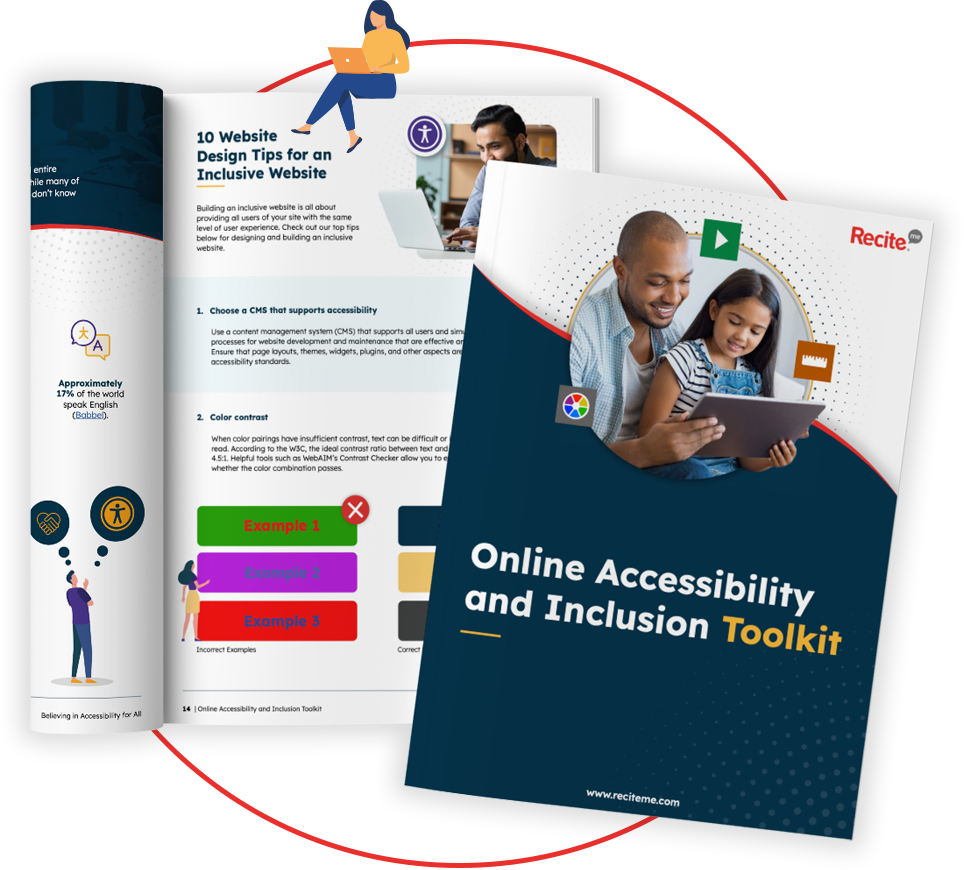
Example of a Strong Employer Brand
As we previously mentioned, inclusive recruitment practices can be critical in delivering that positive first impression that organisations would want to leave on their candidates. This is why it’s so important to create accessible online application processes.
One great example of an organisation taking action against this is from The Very Group. As they partnered with Recite Me to integrate an Accessibility Toolbar on their careers website. This means candidates are able to customise the website and application process in a way that suits them best. With a range of features include text-to-speech software, contrast changer, ruler, translator, screen mask, dictionary, page summariser and many more.
You can find out more about the Accessibility Toolbar here.


